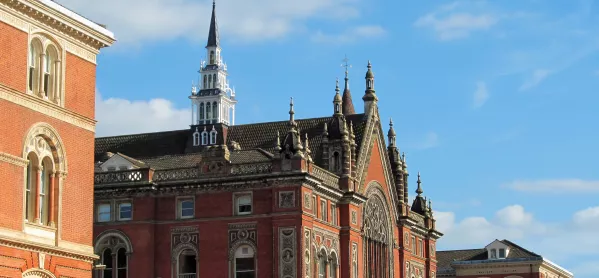Should the independent schools’ sector breathe a sigh of relief?
Should private schools be telling themselves that the danger has passed now that Labour - and the threat of abolition - has been so resoundingly defeated?
Will the “Abolish Eton” campaign that was so successful in its bid to get September’s Labour Party conference to vote to outlaw independent schools just pack up its bags and go home?
The short answer to all these questions is: “Sort of.”
Of course, the immediate threat that would have come with a Labour government has now abated (although, in truth, it was already on the wane once the promise of abolition was reduced in the election manifesto to a commitment to ”ask a commission to look into integrating independent schools into the comprehensive sector”).
And with Jeremy Corbyn’s brand of hard-Left politics suffering so badly at the ballot box, there’s a decent chance that a more moderate brand of Labour will succeed him - one that is less likely to sanction taking “potshots at the toffs” (not my words, but those of a source close to Labour).
So in those limited terms, yes, there ought to be a sigh of relief being let loose in common rooms all the way from Harrow to the smallest prep school in rural Rutland.
But that is only part of the story, and it doesn’t stop to consider what this Tory victory - and how it was won - could mean for the sector.
What will happen to private schools?
It seems to me that the new Conservative government’s attitude to private schools is far from certain: indeed, it could go one of two ways.
It could be that Tory ministers revert to their normal position, one of being passively supportive: you get on with doing what you’re doing; we will occasionally ask you to improve your support for neighbouring state primaries; we will send our children to your schools.
The Conservative government might even go further and propose a scheme of subsidised places for poor children that looks rather like the Assisted Places scheme killed off by New Labour in 1997.
However, there is an alternative political scenario. It might be that the changes in the Conservative Party that are likely to follow its unprecedented victories in northern working-class constituencies represent a renewed threat to the sector. (James Frayne, a lobbyist close to the Conservative Party, wrote convincingly about this this morning.)
This more populist Conservative Party has the potential to see the independent sector as a decent political target to kick about.
As I have written before, rocketing school fees in recent decades have eroded the goodwill towards the sector from voters who perceive themselves as aspiring to self-improvement. These often instinctively Conservative supporters now see these independent schools as out of their reach and, therefore, elitist.
Ministers in Boris Johnson’s government - who will need to retain newly won northern constituencies at the next election - could start threatening the sector with withdrawal of charitable status and the imposition of business rates and VAT on school fees if it doesn’t open itself up to a wider demographic or sponsor new academies. This is, after all, what had been planned should Theresa May have won her botched election in 2017.
This last scenario is far from guaranteed - and it is just as likely that the more traditional supportive approach to private schools will win out - but it’s probably best for the independent sector not to assume that everything will be just fine now Boris Johnson is back in No 10.




